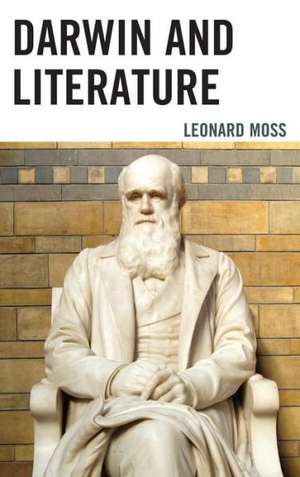Darwin and Literature
Autor Leonard Mossen Limba Engleză Hardback – 25 iun 2014
Preț: 699.04 lei
Preț vechi: 907.84 lei
-23% Nou
Puncte Express: 1049
Preț estimativ în valută:
133.76€ • 140.03$ • 110.68£
133.76€ • 140.03$ • 110.68£
Carte tipărită la comandă
Livrare economică 05-19 aprilie
Preluare comenzi: 021 569.72.76
Specificații
ISBN-13: 9780739185322
ISBN-10: 0739185322
Pagini: 173
Dimensiuni: 160 x 231 x 13 mm
Greutate: 0.4 kg
Editura: Rowman & Littlefield
ISBN-10: 0739185322
Pagini: 173
Dimensiuni: 160 x 231 x 13 mm
Greutate: 0.4 kg
Editura: Rowman & Littlefield
Notă biografică
Descriere
Evolutionary theory has provoked intense controversy. Darwin and Literature reconciles adversarial viewpoints by demonstrating the relevance of Darwin's key concepts in The Origin of Species to writings of the Bible, Shakespeare, and other literary works. This book examines how authors transform biological paradoxes into cultural issues.
